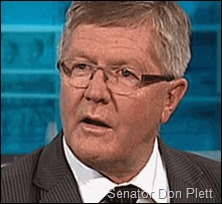Canada has taken another step toward retiring whales and dolphins from captivity in marine parks and aquariums. The Coastal First Nations of British Columbia are calling on senators to vote in favor of Bill S-203, which would not permit any more whales or dolphins to be put on show.
Marilyn Slett, president of an alliance of nine First Nations in British Columbia, has written to senators about the importance of protecting whales and dolphins “while keeping them in the wild where they belong.”
She adds that whale watching and ecotourism businesses provide “a compelling alternative vision for more respectful ways of appreciating and living with some of the most magnificent wild animals on the planet.”
“Why are whales and dolphins still forced to perform tricks for our amusement?”
The bill would amend Canada’s animal cruelty laws, but still allow for rescuing and rehabilitating injured whales and dolphins. It would also allow owners of currently captive whales and dolphins to keep them but not breed them.
The bill is strongly opposed by the captivity industry, in particular by Marineland in Ontario, which currently has one orca and 50 beluga whales, and the Vancouver Aquarium, which has one Pacific white-sided dolphin and one pseudorca, all of them languishing in concrete tanks for the amusement of visitors.
 In committee hearings, Senator Don Plett has been leading the charge on behalf of the captivity industry. And while most of his arguments have been consistently refuted by expert witnesses, he has continued to claim that the bill is not in the interests of First Nations people.
In committee hearings, Senator Don Plett has been leading the charge on behalf of the captivity industry. And while most of his arguments have been consistently refuted by expert witnesses, he has continued to claim that the bill is not in the interests of First Nations people.
But the Coastal First Nations have now come out firmly in favor of ending the use of whales and dolphins as entertainment.
Another senator, Elizabeth Hubley, has written a compelling op-ed for Canada’s Guardian newspaper, saying that it’s time for marine parks to go the same way as circuses that used to have wild animals performing:
“Many people believe that it’s unacceptable to make wild animals entertain us, forcing them to do stunts so far outside their natural behavior. We’ve gotten rid of the traditional circus as a result. So why are whales and dolphins still forced to perform tricks for our amusement?”
 Sen. Hubley quotes Whale Sanctuary Project President Lori Marino, who testified at one of the hearings about having studied dolphins at an aquarium earlier in her career as a neuroscientist. While Dr. Marino learned a lot about their self-awareness and cognitive complexity, she said that more importantly this led her “to really think about what life would be like in a small, concrete tank, going around and around and around, if you were a self-aware being.”
Sen. Hubley quotes Whale Sanctuary Project President Lori Marino, who testified at one of the hearings about having studied dolphins at an aquarium earlier in her career as a neuroscientist. While Dr. Marino learned a lot about their self-awareness and cognitive complexity, she said that more importantly this led her “to really think about what life would be like in a small, concrete tank, going around and around and around, if you were a self-aware being.”
As for the people who testified against the bill, Sen. Hubley writes that all of them had a vested interest in keeping whales and dolphins in concrete tanks:
“In the end, I could not ignore that the witnesses who testified against the bill were those working at aquariums, or with them to do research. Other well-respected researchers and experts in animal behavior and marine biology urged us to pass S-203. Thousands and thousands of Canadians from across the country sent me emails urging the Senate to pass the bill.”
The opposition continues to throw up roadblocks and other tactics to stall the bill. But Sen. Hubley concludes:
“Times change and the entertainment value of watching whales and dolphins swim circles in concrete tanks should be ending. Just like this legislative circus.”
The committee is due to meet again next week to consider the bill.